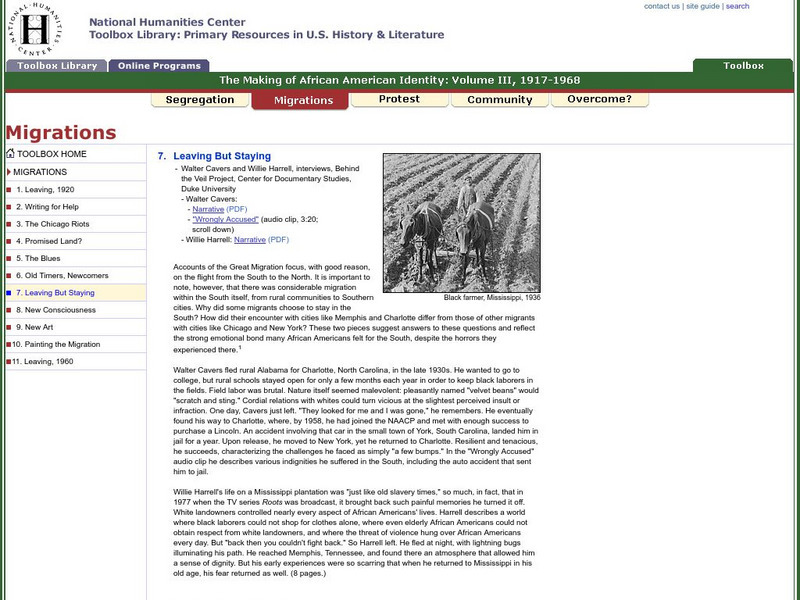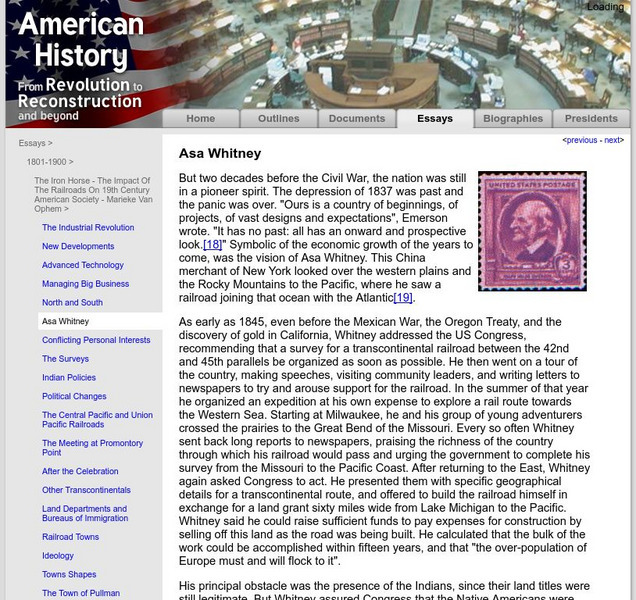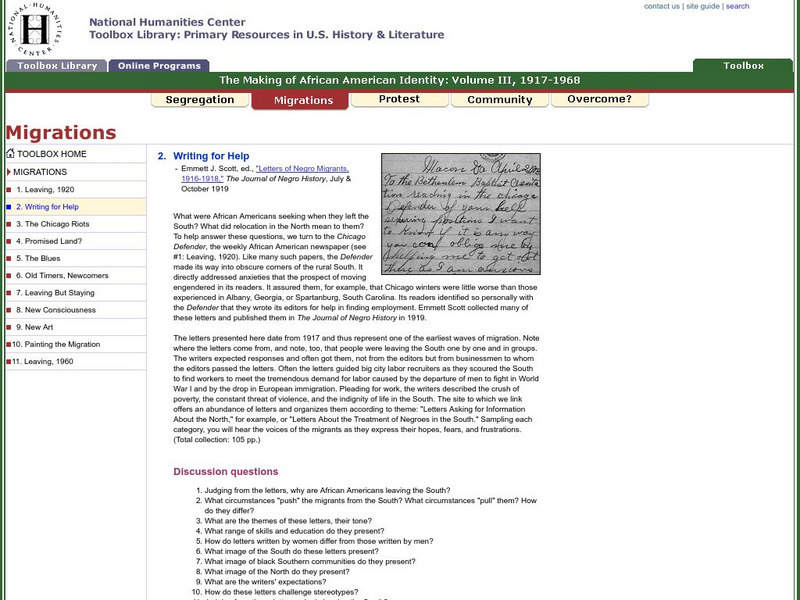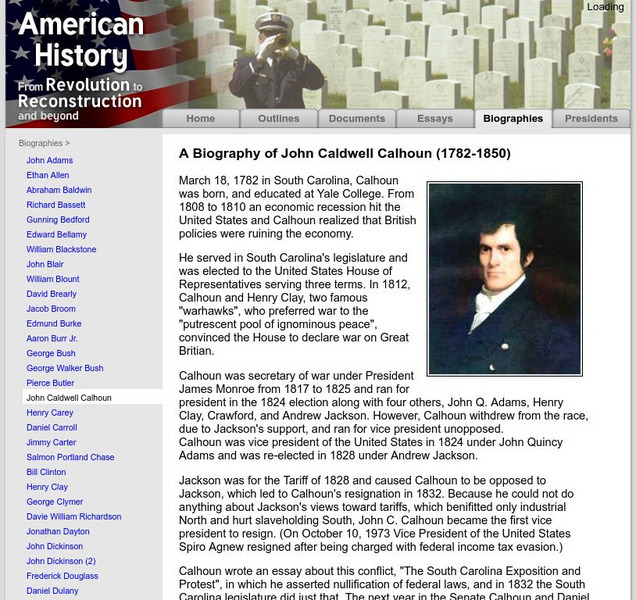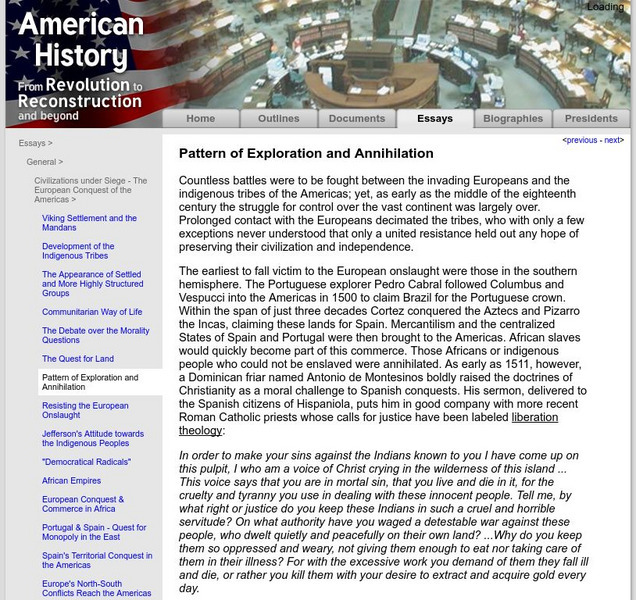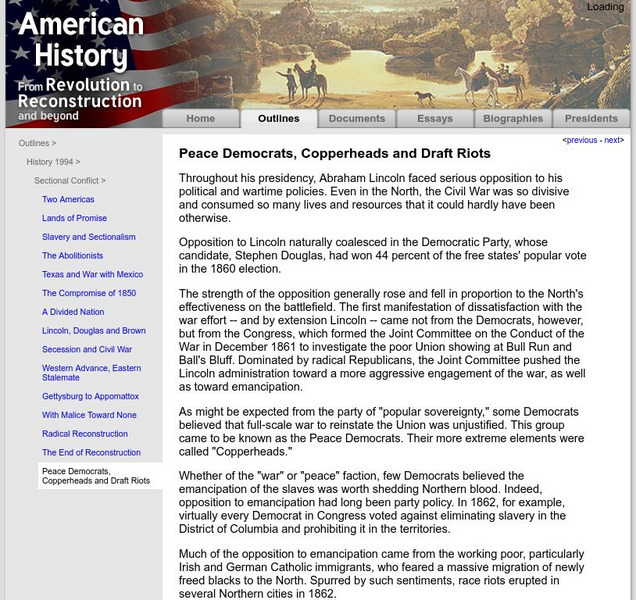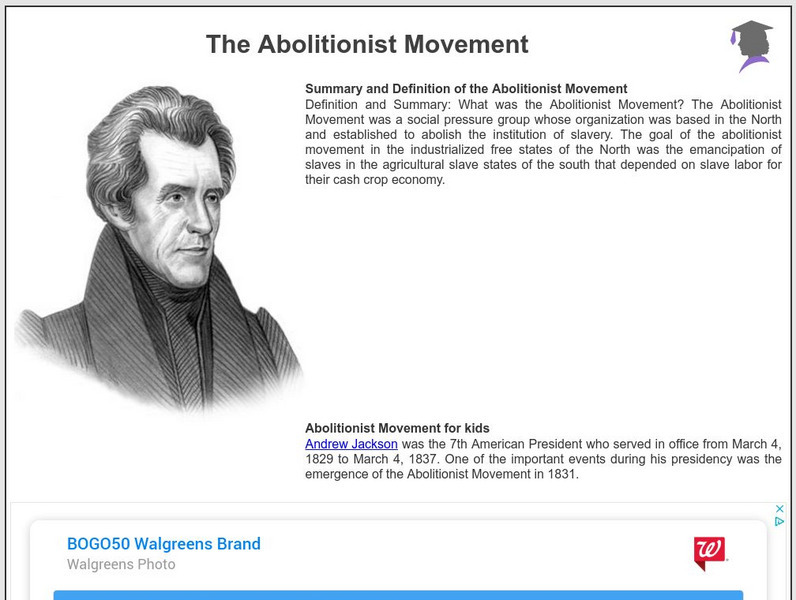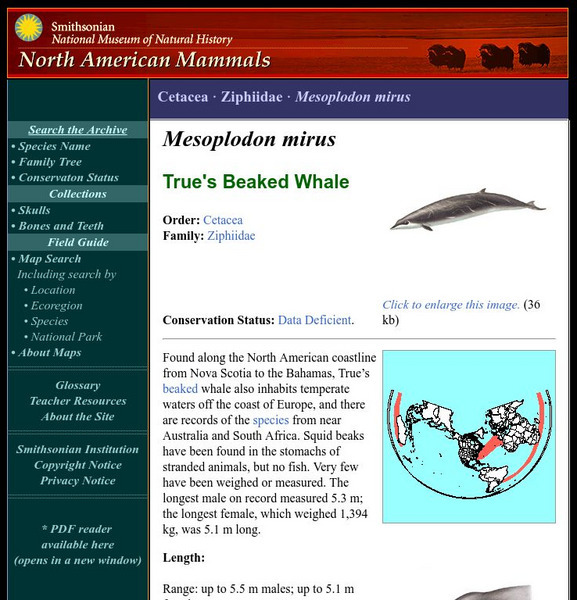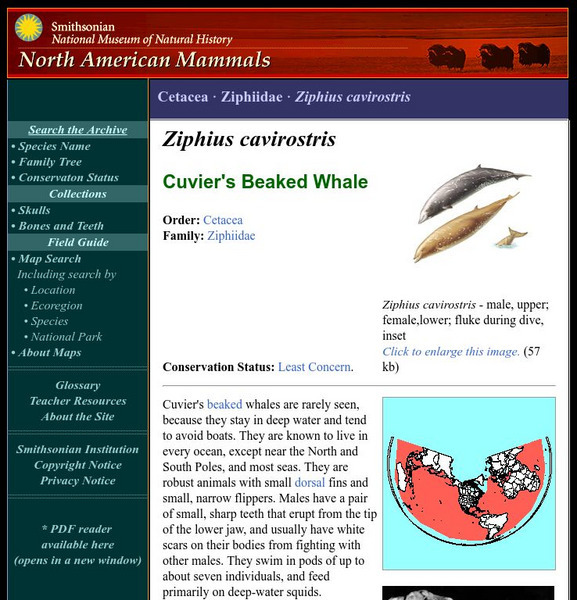Curated OER
Educational Technology Clearinghouse: Maps Etc: North American Colonies, 1783
A map of eastern North America in 1783 at the end of the American Revolutionary War, showing the territory of the newly formed United States as proposed by the Treaty of Paris, the Canadian border extending to the Ohio River proposed by...
Carnegie Museum of Natural History
Carnegie Museum: North South East West: American Indians and the Natural World
Web companion site to the Alcoa Foundation Hall of American Indians exhibit at the Carnegie Museum of Natural History. It focuses on American Indians' relationships with the natural world and explores four different visions: the Tlingit...
National Humanities Center
National Humanities Center: Toolbox Library: Making of African American Identity: Leaving, but Staying
Accounts of African American migrations from the rural South to Southern cities. This resource provides not just accounts of the Great Migration focusing on the flight from the South to the North, but also the migration within the South...
Other
Native Languages of the Americas: Native American Headdresses: Facts for Kids
Describes the different types of headdresses worn by Native American groups across North, Central and South America. (Note: some links to larger images no longer work.)
Other
Vox: 37 Maps That Explain the American Civil War
April 1865 was a momentous month in American history. On April 9, the Confederate army under Robert E. Lee surrendered to the Union forces of Ulysses S. Grant, effectively ending the Civil War. Then on April 14, the victorious President...
University of Groningen
American History: Essays: The Iron Horse: Asa Whitney
From a lengthy essay on the history of the railroad in the United States. This section describes what Asa Whitney did to promote the idea of a transcontinental railroad in the North. His efforts provoked the South into campaigning for...
Digital History
Digital History: The Southernmost Colonies: The Carolinas and Georgia
Read about the colonization of the Carolinas and Georgia, find out about the role of slavery in those colonies, and see how the Native Americans were treated.
National Humanities Center
National Humanities Center: Toolbox Library: Making of African American Identity: Forward:1917
Letters, an article, a pamphlet, and a song that point to greater black migration from the South and black cultural achievements in the twentieth century. The texts examines how migrations north affected the relationships of African...
National Humanities Center
National Humanities Center: Toolbox Library: Writing for Help, Making of African American Identity: V. 3
Letters by African Americans seeking help to leave the South. They explore issues including identity, family, community, and the struggles induced by the need to migrate north.
University of Groningen
American History: Biographies: John Caldwell Calhoun
This biographical resource on John Calhoun points out Calhoun's resignation, the first vice-president to resign from active office. Calhoun opposed Jackson's affirmative stand on the Tariff of 1828 which favored the Industrial North over...
University of Groningen
American History: Essays: Pattern of Exploraiton and Annihilation
Poignant account of the decimation of indigenous peoples in both South and North America during the 16th and 17th Centuries.
Other
Sc Reptiles & Amphibians: Eastern & Florida Cottonmouth
South Carolina Reptiles & Amphibians profiles the eastern cottonmouth. A great site for photos-- both the eastern and Florida cottonmouth are pictured.
University of Groningen
American History: Outlines: Peace Democrats, Copperheads, and Draft Riots
Abraham Lincoln did not have universal backing in the conduct of the Civil War. Read about the opposition, mainly from the Democrats, who opposed emancipation of the slaves and waging a war to reunited the country.
Other
The Mammoth Site of Hot Springs, South Dakota
General site describes history and origin of the Mammoth. Includes links to paleontology, geology and archeology sites that are related to the study of the Mammoth.
A&E Television
History.com: The States
Learn unique facts about each American state. You can also read a more in-depth history of each state, watch videos and play a game about all the states.
Other
Encyclopedia of American Foreign Policy: Civil War Diplomacy
An article by noted historian, Kinley Brauer, discusses the role of foreign policy for both the North and the South in the Civil War. An interesting, and often forgotten, aspect of the war.
Virginia Historical Society
Virginia Historical Society: Waging War: The Battlefront: Men of Color to Arms?
When the war began, many African Americans - North and South - volunteered to serve as soldiers. The vast majority were former slaves who sought to strike at slavery and improve their position in society. Desperate to avert defeat, the...
TED Talks
Ted: Ted Ed: What Happens When Continents Collide?
Tens of millions of years ago, plate tectonics set North and South America on an unavoidable collision course that would change the face of the Earth and spell life or death for thousands of species. Juan D. Carrillo explains the massive...
Siteseen
Siteseen: American Historama: The Abolitionist Movement
Learn the history of the Abolitionist Movement that was established in the free states of the North to abolish the institution of slavery in the South.
Siteseen
Siteseen: American Historama: Vietnam War Facts
Numerous detailed facts concerning the Vietnam War (November 1, 1955-April 30, 1975) that began during the Cold War era.
Smithsonian Institution
National Museum of Natural History: American Mammals: True's Beaked Whale
Found along the North American coastline from Nova Scotia to the Bahamas, True's beaked whale also inhabits temperate waters off the coast of Europe, and there are records of the species from near Australia and South Africa. Squid beaks...
Smithsonian Institution
National Museum of Natural History: American Mammals: Swamp Rabbit
The Swamp Rabbit is the largest North American cottontail, but has relatively short ears in proportion to its size. It forages for grasses, sedges, some tree seedlings, and other plants in marshy lowlands of the south-central United...
Smithsonian Institution
National Museum of Natural History: American Mammals: Northern Pocket Gopher
Of all North American pocket gophers, the Northern Pocket Gopher has the widest distribution, across most of the western United States and south-central Canada, and it occurs in the greatest variety of habitats. Only habitats with a...
Smithsonian Institution
National Museum of Natural History: American Mammals: Cuvier's Beaked Whale
Cuvier's beaked whales are rarely seen because they stay in deep water and tend to avoid boats. They are known to live in every ocean, except near the North and South Poles, and most seas. Learn more about the Ziphius cavirostris, more...

